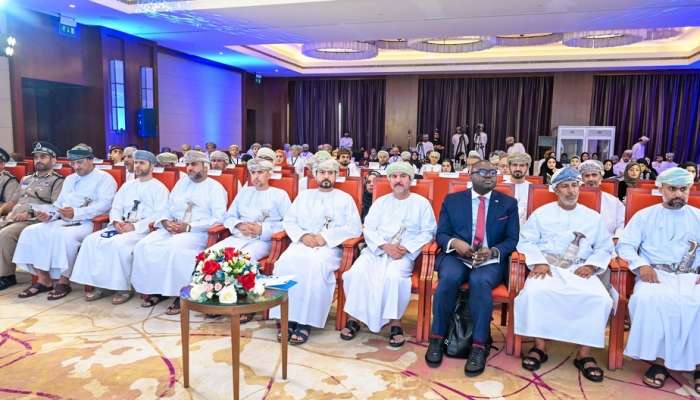
Muscat– The Business and Human Rights Forum commenced today, organized by the Omani Human Rights Commission in collaboration with the United Nations Working Group on Business and Human Rights.
The two-day event sees broad participation from government representatives, private sector institutions, civil society organizations, UN agencies, academic institutions, and a select group of experts and researchers specializing in human rights and corporate governance.
The opening ceremony was held under the patronage of Qais Mohammed Al Yousef, Minister of Commerce, Industry and Investment Promotion.
The first day featured two working sessions. The first discussed international and national frameworks related to business and human rights, including the UN Guiding Principles on Business and Human Rights, the role of Oman Vision 2040 in enabling business and supporting human rights, Oman’s legislative framework for worker protection, and the role of higher education institutions in promoting human rights in the business environment.
The second session addressed shared responsibilities in advancing human rights in business, covering topics such as the judiciary’s role in protecting human rights in commerce, the efforts of Oman Chamber of Commerce and Industry in promoting human rights, the Consumer Protection Authority’s initiatives to ensure fair trade practices, and Ooredoo’s policies in supporting the rights of persons with disabilities in the workplace.
On the second day, the forum will focus on building effective institutional policies to protect human rights in business and the role of civil society and other sectors in advancing human rights.
This forum aligns with national efforts to promote justice and transparency in the workplace and integrate human rights principles into business policies and practices, in line with the UN Guiding Principles on Business and Human Rights and Oman Vision 2040, which prioritizes a sustainable economy based on empowerment, participation, and accountability.
The event seeks to foster multilateral dialogue among business stakeholders, raise awareness of international human rights principles, exchange best national and regional practices, address emerging challenges in integrating human rights into business policies, review successful institutional experiences, and propose ways to align local legislation with international standards. It also highlights the role of judicial institutions, legislative initiatives, and civil society in supporting this direction.
The ceremony also saw the launch of a national initiative to employ persons with disabilities in the private sector, aiming to provide equal opportunities, eliminate discrimination in hiring, and ensure their fair and equitable inclusion in the workforce. The initiative seeks to link the forum’s outcomes with practical steps supporting the rights of persons with disabilities in the labour market and achieving national employment targets for this group.